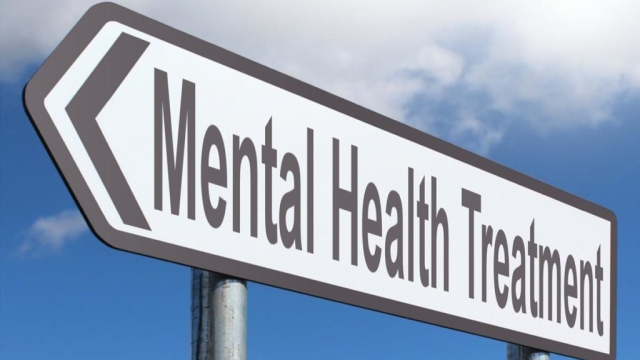In a world where mental health care continues to be a pressing concern, therapy trainings have emerged as a transformative and revolutionary approach. These trainings encompass a range of techniques and strategies aimed at equipping mental health professionals with the necessary skills to effectively support individuals in need. With a growing emphasis on holistic well-being, these trainings are playing a vital role in reshaping the landscape of mental health care, enabling practitioners to provide comprehensive, personalized, and compassionate support to their clients.
One of the key aspects that make therapy trainings so impactful is their focus on equipping professionals with a diverse range of therapeutic approaches. From cognitive-behavioral therapy to mindfulness-based techniques, these trainings ensure that therapists have a rich toolbox at their disposal, enabling them to tailor their interventions to suit each individual’s unique needs. This emphasis on versatility not only enhances the therapist’s ability to address a wide spectrum of mental health concerns but also empowers them to adapt their approach as new research and evidence emerge.
Moreover, therapy trainings go beyond the acquisition of technical skills by emphasizing the importance of building a secure and trusting therapeutic relationship. Recognizing the fundamental role of this relationship in fostering positive mental health outcomes, these trainings prioritize the development of effective communication, empathy, and active listening skills. By creating a safe and non-judgmental space for clients to openly express their thoughts and emotions, therapists who have undergone these trainings can establish a strong foundation for personal growth and self-discovery.
As mental health care continues to evolve, therapy trainings have become a driving force behind its revolution. By providing mental health professionals with comprehensive, evidence-based knowledge and skills, these trainings are propelling the field towards a future where compassionate and effective care is accessible to all. As we collectively prioritize the well-being of individuals, therapy trainings stand as a beacon of hope, illuminating the path towards a transformed and inclusive mental health care system.
Benefits of Therapy Trainings
Therapy trainings provide numerous benefits for mental health care professionals. By participating in these trainings, therapists gain valuable skills and knowledge that enhances their ability to effectively support and treat their clients.
Firstly, therapy trainings help therapists develop a deeper understanding of various mental health conditions and disorders. Through workshops and educational sessions, therapists learn about the latest research, diagnostic criteria, and treatment approaches. This expanded knowledge equips them with the tools to accurately assess and diagnose clients, leading to more targeted and effective interventions.
Secondly, therapy trainings foster the development of essential therapeutic techniques and strategies. Therapists learn evidence-based interventions that have proven to be effective in addressing specific mental health concerns. By acquiring these skills, therapists can offer a wide range of interventions tailored to meet their clients’ unique needs, leading to improved outcomes and client satisfaction.
Furthermore, therapy trainings provide therapists with a platform for professional growth and self-reflection. These trainings often involve case discussions, role plays, and other interactive activities that encourage therapists to critically examine their own practice. By engaging in these reflective exercises, therapists can identify areas for improvement and refine their therapeutic approach, ultimately becoming more skilled and effective practitioners.
In conclusion, therapy trainings offer invaluable benefits for mental health care professionals. Through increased knowledge, development of therapeutic techniques, and opportunities for self-reflection, therapists can revolutionize mental health care by providing the highest standard of treatment and support to their clients.
Improving Access to Mental Health Care
In order to address the pressing need for accessible mental health care services, therapy trainings play a pivotal role. These trainings equip individuals from various backgrounds with the necessary skills and knowledge to deliver effective therapeutic interventions to those in need. By taking the therapeutic power beyond the confines of traditional mental health care settings, therapy trainings revolutionize the way mental health care is delivered and improve access for individuals who may have otherwise been unable to receive the support they require.
Therapy trainings have the potential to bridge the gap between the demand for mental health care and the available resources. With the increasing prevalence of mental health issues worldwide, it is imperative to expand the pool of trained professionals who can provide support. By offering therapy trainings to individuals from diverse backgrounds, such as educators, community leaders, and first responders, we can reach communities that are otherwise underserved. This approach brings mental health care closer to those who may not have sought it out or had the means to access it previously.
See More
Furthermore, therapy trainings empower individuals to become active agents in their own mental health care. Through these trainings, individuals acquire the skills necessary to support themselves and others in managing and overcoming mental health challenges. This not only reduces the burden on traditional mental health care systems but also encourages a collective approach to mental well-being. By training a wide range of individuals, we can create a society that is better equipped to recognize and address mental health concerns, thereby fostering a more supportive and inclusive environment for all.
In conclusion, therapy trainings have the potential to significantly improve access to mental health care. By expanding the pool of trained professionals and empowering individuals to take an active role in their mental well-being, therapy trainings revolutionize how mental health care is delivered. This approach not only addresses the increasing need for support but also creates a society that is more knowledgeable and compassionate towards mental health issues. Through the transformative power of therapy trainings, we can pave the way for a future where mental health care is readily accessible to all individuals.
Promoting Effective Treatment Approaches
In order to enhance mental health care and therapy trainings, it is crucial to prioritize the promotion of effective treatment approaches. By doing so, we can revolutionize the way mental health care is provided and ensure that individuals receive the best possible support and treatment for their specific needs.
One key aspect of promoting effective treatment approaches is the emphasis on evidence-based practices. This means that therapy trainings should focus on teaching therapists and mental health care professionals proven techniques and interventions that have been backed by research and shown to be effective in treating various mental health conditions.

Additionally, it is essential to encourage a multidisciplinary approach in therapy trainings. Mental health care is a complex field that requires collaboration and integration of various disciplines such as psychology, psychiatry, social work, and counseling. By incorporating different perspectives and expertise, therapy trainings can provide a comprehensive and holistic approach to treating mental health conditions.
Furthermore, promoting the use of technology in therapy trainings can greatly enhance mental health care. With the increasing accessibility and advancements in technology, incorporating tools such as teletherapy and mobile applications can expand the reach of mental health care services and provide convenient and effective treatment options for individuals who may have limited access to traditional in-person therapy.
By prioritizing the promotion of effective treatment approaches in therapy trainings, we can revolutionize mental health care and ensure that individuals receive high-quality, evidence-based treatments that address their specific needs. This will lead to improved outcomes and a more comprehensive approach to supporting individuals with mental health conditions.



